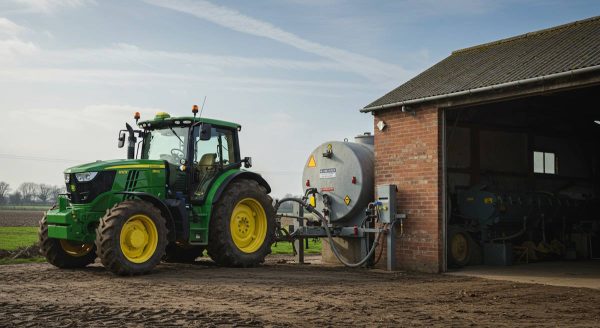Agricultural vehicles in the UK have traditionally relied on rebated diesel (red diesel) for their operations. According to the provided government guidance, vehicles used solely for agriculture, horticulture, or forestry work are permitted to use rebated fuel, provided they meet specific criteria such as being designed primarily for off-road use and only using public roads for agricultural purposes.
Moving Beyond Red Diesel
The agricultural sector is increasingly exploring alternative fuel options, driven by both environmental concerns and the need for sustainable farming practices. The alternatives to red diesel need to comply with existing regulations while offering practical benefits for farmers.
Permitted Alternative Fuels
Hydrotreated Vegetable Oil (HVO) stands out as a particularly viable alternative for agricultural vehicles. As a direct replacement for conventional diesel, it can be used in most existing agricultural machinery without requiring significant modifications. HVO is particularly relevant for agricultural operations as it can be used in tractors and other farm machinery that would typically run on red diesel.

Environmental Considerations
When choosing alternative fuels for agricultural vehicles, farmers must ensure they maintain compliance with emissions standards. The provided documentation indicates that agricultural motor vehicles must meet specific noise and emissions requirements, with vehicles over 65 kW being subject to particular decibel limitations.
Implementation Challenges
One of the main considerations when switching to alternative fuels is maintaining vehicle warranty compliance and ensuring proper operation of the machinery. Any alternative fuel usage should not compromise the vehicle’s ability to perform its primary agricultural functions, whether that’s fieldwork or travelling between different areas of farmland.
Safety and Storage
When using alternative fuels, the same safety principles apply as with conventional fuels. Vehicles must remain roadworthy and safe for operation, both on private land and, when necessary, on public roads. Storage facilities for alternative fuels need to meet the same safety standards as those for conventional fuels.

Looking Forward
The agricultural sector’s transition to alternative fuels represents a significant opportunity for reducing environmental impact while maintaining operational efficiency. As technology advances and regulations evolve, we’re likely to see an increasing range of alternative fuel options becoming available to UK farmers.
It’s worth noting that any switch to alternative fuels must be considered within the broader context of agricultural vehicle regulations, including licensing requirements and vehicle classification. Farmers should consult with their vehicle manufacturers and relevant authorities when considering alternative fuel options to ensure continued compliance with all applicable regulations.
